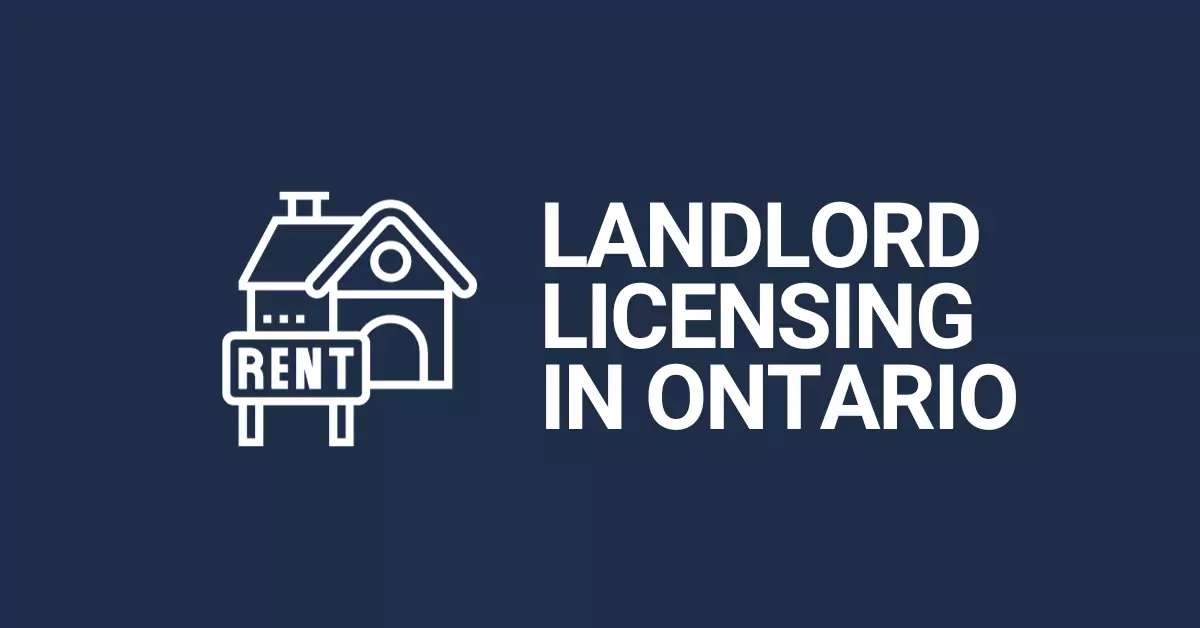Being a landlord in Ontario comes with its own set of responsibilities and regulations. One of the key aspects of property management in this province is understanding and complying with landlord licensing requirements. Whether you’re a seasoned landlord or just starting in the rental property business, it’s crucial to have a grasp of these regulations to ensure you’re operating within the law. In this blog post, we’ll delve into the ins and outs of landlord licensing in Ontario.
What Is Landlord Licensing?
Landlord licensing is a regulatory framework that requires landlords to obtain licenses for their rental properties. The main goal of landlord licensing is to ensure that rental properties meet certain safety and maintenance standards, protecting the well-being of tenants.
Key Aspects of Landlord Licensing in Ontario:
- Municipal Variations: Landlord licensing regulations can vary from one municipality to another in Ontario. Some cities, such as Toronto and Ottawa, have their own licensing bylaws, while others rely on provincial legislation. It’s crucial to research and understand the specific requirements in your area.
- Property Eligibility: Not all rental properties require licensing. In some cases, only specific types of rental properties, such as multi-unit dwellings, may need licenses. The eligibility criteria can also depend on factors like property size and the number of rental units.
- Inspections and Standards: To obtain a license, landlords often need to have their properties inspected to ensure they meet safety and maintenance standards. These standards can include fire safety measures, sanitation, and overall building condition.
- Fees and Renewals: Licensing typically involves fees that landlords must pay. These fees can vary depending on the municipality and the type of property. Additionally, licenses may need to be renewed annually or on a different schedule.
- Tenant Relations: Landlord licensing can also include regulations related to tenant relations, such as dispute resolution processes and tenant rights. Staying informed about tenant rights and responsibilities is essential for landlords.
- Penalties for Non-Compliance: Failing to comply with landlord licensing requirements can result in penalties, fines, and even the revocation of your license. It’s crucial to take these regulations seriously and ensure you’re in compliance.
Benefits of Landlord Licensing:
- Tenant Safety: Licensing helps ensure that rental properties are safe and well-maintained, protecting the health and safety of tenants.
- Professionalism: Compliance with licensing requirements can enhance your reputation as a responsible and professional landlord.
- Legal Protection: Following regulations can provide legal protection for landlords in case of disputes or tenant complaints.
- Community Standards: Licensing contributes to maintaining higher standards of living in communities and neighborhoods.
Conclusion:
Navigating the world of landlord licensing in Ontario may seem complex, but it’s an essential aspect of being a responsible landlord. By understanding the specific requirements in your municipality, maintaining your properties to meet safety standards, and staying informed about tenant rights, you can ensure a smooth and lawful rental property business. Complying with landlord licensing not only benefits your tenants but also safeguards your investments and reputation in the long run.

